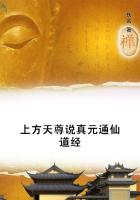He was then impressed, by experience, with the sense of his own weakness, and began to weep. Virginia said to him,--"Do not weep, my dear brother, or I shall be overwhelmed with grief. I am the cause of all your sorrow, and of all that our mothers are suffering at this moment. I find we ought to do nothing, not even good, without consulting our parents. Oh, I have been very imprudent!"--and she began to shed tears. "Let us pray to God, my dear brother," she again said, "and he will hear us." They had scarcely finished their prayer, when they heard the barking of a dog. "It must be the dog of some hunter," said Paul, "who comes here at night, to lie in wait for the deer." Soon after, the dog began barking again with increased violence. "Surely," said Virginia, "it is Fidele, our own dog: yes,--now I know his bark. Are we then so near home?--at the foot of our own mountain?" A moment after, Fidele was at their feet, barking, howling, moaning, and devouring them with his caresses. Before they could recover from their surprise, they saw Domingo running towards them. At the sight of the good old negro, who wept for joy, they began to weep too, but had not the power to utter a syllable. When Domingo had recovered himself a little,--"Oh, my dear children," said he, "how miserable have you made your mothers! How astonished they were when they returned with me from mass, on not finding you at home. Mary, who was at work at a little distance, could not tell us where you were gone. I ran backwards and forwards in the plantation, not knowing where to look for you. At last I took some of your old clothes, and showing them to Fidele, the poor animal, as if he understood me, immediately began to scent your path; and conducted me, wagging his tail all the while, to the Black River. I there saw a planter, who told me you had brought back a Maroon negro woman, his slave, and that he had pardoned her at your request. But what a pardon! he showed her to me with her feet chained to a block of wood, and an iron collar with three hooks fastened round her neck! After that, Fidele, still on the scent, led me up the steep bank of the Black River, where he again stopped, and barked with all his might. This was on the brink of a spring, near which was a fallen palm-tree, and a fire, still smoking.
At last he led me to this very spot. We are now at the foot of the mountain of the Three Breasts, and still a good four leagues from home. Come, eat, and recover your strength." Domingo then presented them with a cake, some fruit, and a large gourd, full of beverage composed of wine, water, lemon-juice, sugar, and nutmeg, which their mothers had prepared to invigorate and refresh them. Virginia sighed at the recollection of the poor slave, and at the uneasiness they had given their mothers. She repeated several times--"Oh, how difficult it is to do good!" While she and Paul were taking refreshment, it being already night, Domingo kindled a fire: and having found among the rocks a particular kind of twisted wood, called bois de ronde, which burns when quite green, and throws out a great blaze, he made a torch of it, which he lighted. But when they prepared to continue their journey, a new difficulty occurred; Paul and Virginia could no longer walk, their feet being violently swollen and inflamed. Domingo knew not what to do; whether to leave them and go in search of help, or remain and pass the night with them on that spot. "There was a time," said he, "when I could carry you both together in my arms! But now you are grown big, and I am grown old." When he was in this perplexity, a troop of Maroon negroes appeared at a short distance from them. The chief of the band, approaching Paul and Virginia, said to them,--"Good little white people, do not be afraid. We saw you pass this morning, with a negro woman of the Black River. You went to ask pardon for her of her wicked master; and we, in return for this, will carry you home upon our shoulders." He then made a sign, and four of the strongest negroes immediately formed a sort of litter with the branches of trees and lianas, and having seated Paul and Virginia on it, carried them upon their shoulders. Domingo marched in front with his lighted torch, and they proceeded amidst the rejoicings of the whole troop, who overwhelmed them with their benedictions. Virginia, affected by this scene, said to Paul, with emotion,--"Oh, my dear brother! God never leaves a good action unrewarded."
It was midnight when they arrived at the foot of their mountain, on the ridges of which several fires were lighted. As soon as they began to ascend, they heard voices exclaiming--"Is it you, my children?"
They answered immediately, and the negroes also,--"Yes, yes, it is."
A moment after they could distinguish their mothers and Mary coming towards them with lighted sticks in their hands. "Unhappy children," cried Madame de la Tour, "where have you been? What agonies you have made us suffer!"--"We have been," said Virginia, "to the Black River, where we went to ask pardon for a poor Maroon slave, to whom I gave our breakfast this morning, because she seemed dying of hunger; and these Maroon negroes have brought us home." Madame de la Tour embraced her daughter, without being able to speak; and Virginia, who felt her face wet with her mother's tears, exclaimed, "Now I am repaid for all the hardships I have suffered." Margaret, in a transport of delight, pressed Paul in her arms, exclaiming, "And you also, my dear child, you have done a good action." When they reached the cottages with their children, they entertained all the negroes with a plentiful repast, after which the latter returned to the woods, praying Heaven to shower down every description of blessing on those good white people.
Every day was to these families a day of happiness and tranquillity.















